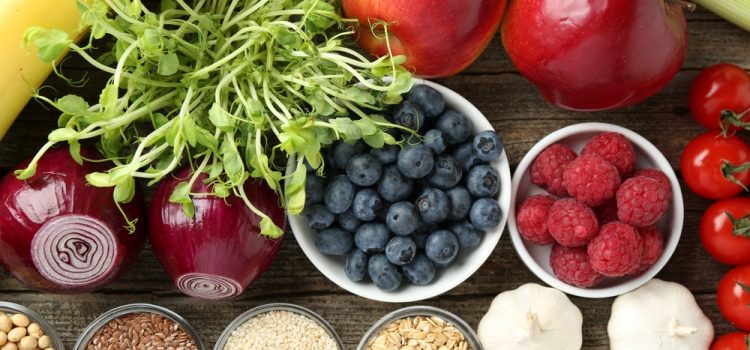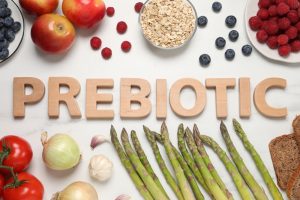
Take Prebiotics Before Your Probiotics
Probiotics produce enzymes that aid in breaking down complex carbohydrates and proteins, facilitating smoother digestion and reducing gas production.
Probiotics also influence the movement of the gastrointestinal tract, helping to alleviate symptoms like bloating and constipation.
Common food sources of probiotics include yogurt, kefir, and sauerkraut. Keep reading to learn more about the benefits of probiotics and prebiotics.
Bloating and Balancing Gas-Producing Bacteria:
Bloating often results from excessive gas production or impaired gas transit in the intestines. By promoting a healthy microbiota composition, probiotics can reduce the prevalence of gas-producing bacteria, thereby decreasing bloating.
Preserving Gut Balance:
 Probiotics help restore the balance of gut bacteria by increasing the population of beneficial microbes. This can help outnumber harmful bacteria that contribute to bloating and other digestive issues.
Probiotics help restore the balance of gut bacteria by increasing the population of beneficial microbes. This can help outnumber harmful bacteria that contribute to bloating and other digestive issues.
Enhancing Digestion:
Probiotics can improve the digestion of food, making it easier for your body to break down complex carbohydrates and absorb nutrients. This can reduce the fermentation process that often leads to gas production.
Reducing Gas Production:
Certain probiotic strains, such as Lactobacillus and Bifidobacterium, have been shown to help reduce gas and bloating by improving the breakdown of food components and absorbing excess gas.
Combating Constipation:
Probiotics can also help alleviate constipation, which is often a contributing factor to bloating. By promoting regular bowel movements, they can help prevent the buildup of gas in the intestines.
Prebiotics Enhance Probiotic Efficacy
Prebiotics are non-digestible fibers that serve as food for probiotics. Combining both can lead to improved gut health outcomes – from bloating to abdominal discomfort.
Here are some top prebiotic foods to consider:
 Many natural foods contain fibers and compounds that act as prebiotics, providing nourishment for probiotics and promoting a balanced gut environment.
Many natural foods contain fibers and compounds that act as prebiotics, providing nourishment for probiotics and promoting a balanced gut environment.
- Garlic – Garlic contains inulin, a prebiotic fiber. It’s easy to incorporate into dishes like soups, sauces, and marinades.
- Onions – Onions are rich in inulin and fructooligosaccharides (FOS). Onions can be eaten raw in salads, added to stir-fries.
- Bananas – Particularly green or underripe bananas are rich in resistant starch, which acts as a prebiotic. Bananas are great in smoothies, on cereal, or as a snack.
- Asparagus – Asparagus contains inulin and other prebiotic fibers. Try it steamed, grilled, or roasted as a side dish.
- Oats – Oats are high in beta-glucan fiber. They’re versatile in breakfast bowls, baked goods.
- Apples – Apples contain pectin, a type of fiber that acts as a prebiotic. Apple skin, in particular, provides the most fiber.
- Barley and Rye – Whole grains like barley and rye contain beta-glucan and other fibers that support gut bacteria. They work well in soups, stews, or as hearty side dishes.
- Leeks – Leeks contain inulin and are also high in FOS. They have a mild onion-like flavor, making them suitable for soups, stews, or as a roasted side.
- Cocoa – Dark chocolate or cocoa contains polyphenols that act as prebiotics. Opt for dark chocolate with a high cocoa content for maximum benefits.
If you have further questions about prebiotics and probiotics or are looking for information on how to improve your health, reach out to us today!
